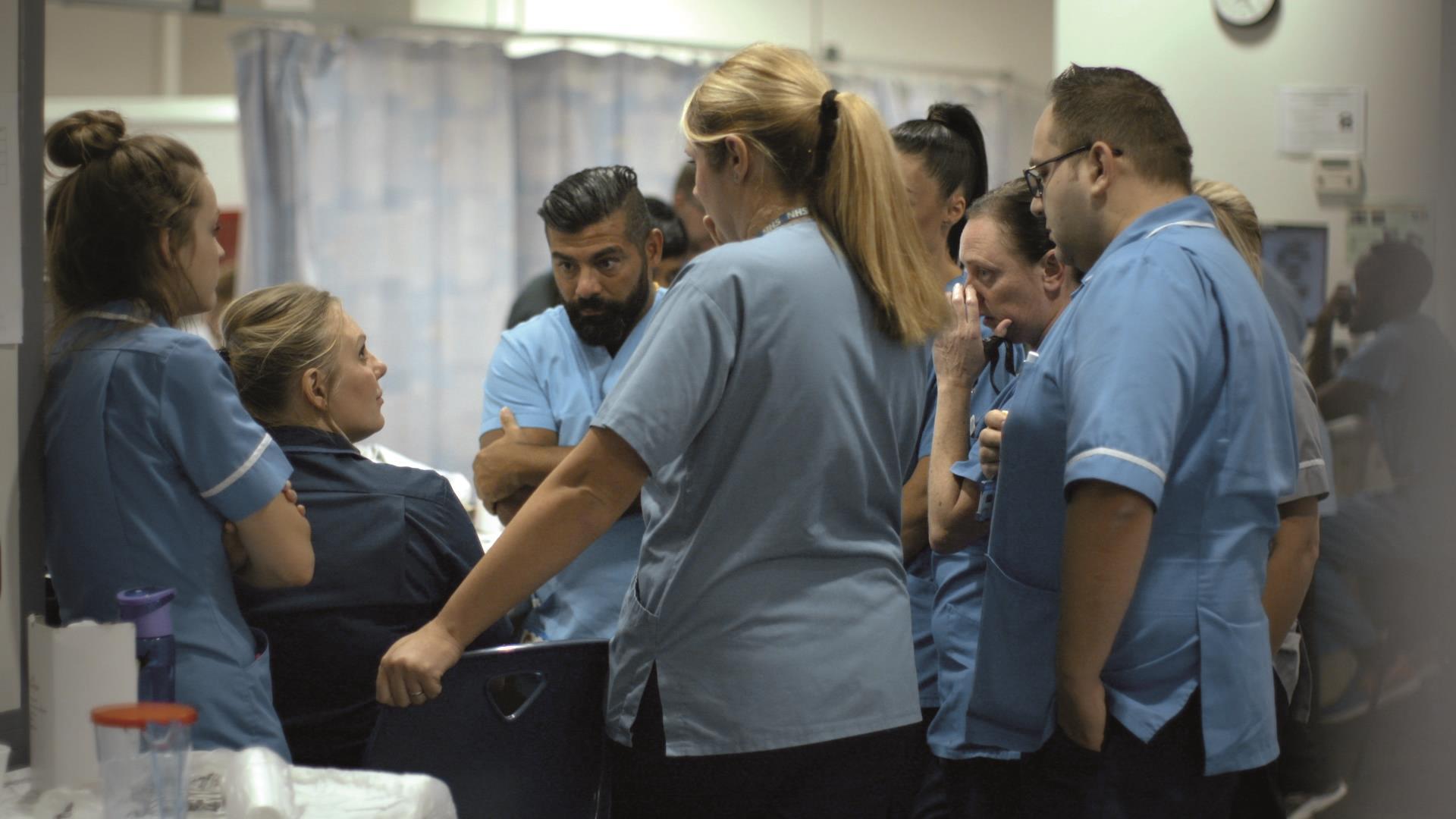When you hear the phrase "critical condition," a feeling of worry often sets in, and that's completely natural. It brings up a lot of questions about someone's health, doesn't it? People often wonder just how serious this medical term really is. We are going to talk about what it means when someone is in this kind of state, and why it matters so much.
The word "critical" itself can mean many things in everyday conversation. It might mean finding fault, or saying something is wrong, you know? For example, a teacher might be critical of a student's work, or someone might make remarks that are far too critical of a public figure. But when we talk about health, it takes on a very different, more urgent meaning, so it's important to be clear.
In a hospital setting, this term tells us about a person's health situation. It suggests something very important for how things will turn out. This article will help you understand what "critical condition" truly means in a medical sense. We will also look at why it's a term that gets so much attention, especially from families and caregivers.
Table of Contents
- Understanding "Critical": More Than Just a Word
- The Medical Side: Is Critical Condition Bad?
- Why It Matters: The Importance of Being "Critical"
- Supporting Someone in Critical Condition
- The Path Forward: Improvement and Recovery
- Frequently Asked Questions
Understanding "Critical": More Than Just a Word
The word "critical" is actually quite a versatile word in our language. It can mean being inclined to find fault, you know, or to judge things rather severely. For instance, parents who are too critical might make their children anxious, so this shows one way the word is used.
It can also mean giving opinions or relating to critics. A critical edition of Chaucer, for example, would be one that has been carefully looked at by experts. This shows how the word can be used in academic settings, too it's almost a different world of meaning.
Sometimes, "critical" points to something being very important for the way things will go. Think about a critical moment in a game or a critical decision in life. This meaning suggests a turning point, you see, a moment that really matters. So, the word has many layers of meaning depending on how it is used.
- Stardew Valley Deluxe Shed Keg Layout
- Red And White Graphic Tee
- Country Wallpapers
- Tim Henson Wife
- White Background With Laender Accent
The Medical Side: Is Critical Condition Bad?
When we talk about a person's health, "critical condition" is indeed a serious term. If someone is in a critical condition in a hospital, they are very ill, so this is a key point to remember. It means their health is in a very delicate state, and they need a lot of medical attention, you know.
For example, you might hear news reports say that ten of the injured are in critical condition after an event. This tells us that those people are facing a very tough health challenge. It means their bodies are working hard to cope, and medical teams are working hard to help them, too.
This state often suggests that someone is "verging on emergency," as the text says. It means the situation could change quickly, and constant care is needed. So, yes, it is a bad situation in terms of health, as it implies a severe illness that needs immediate and ongoing care.
What "Critical Condition" Really Means
In the hospital, "critical condition" means a person is seriously ill, as we've said. It also means their vital signs might not be stable, or they might need help to keep their body working. This is a very important point, as it shows the level of concern medical staff have.
The term suggests a "crisis or turning point," too. This means the person's body is at a moment where things could go either way. It's a time when careful assessment is needed, and medical professionals are constantly checking on them, you see.
It means the person's life could be in danger, and they are getting very close attention. They might be in an intensive care unit, or ICU, where special equipment and staff are available. So, it is a state that calls for the highest level of medical care and observation, that is for sure.
Critical vs. Other Medical Terms
Sometimes people wonder how "critical" compares to other terms like "serious." While our text specifically says "critical condition" means someone is "seriously ill," it doesn't give a direct comparison between "critical" and just "serious" as separate categories. However, the use of "verging on emergency" for critical suggests a higher level of worry.
A "critical condition" is usually understood to be the most severe state. It means the person's body systems might be failing or at risk of failing, you know. They need constant medical support to keep them going. So, it's a state that is very concerning for medical teams and loved ones.
It is more than just being unwell; it is about being at a point where things could get worse quickly without intense care. This level of illness requires continuous monitoring and often complex medical treatments. So, it's a very high level of illness, indeed.
Why It Matters: The Importance of Being "Critical"
The fact that someone is in a critical condition is very important for how their health journey will unfold. It means that every moment counts, and medical decisions are made with great care. This state often requires a team of doctors and nurses working together, so it's a big effort.
The text mentions "very important for the way things will…" and this truly applies here. The care given during this time can greatly affect a person's chances of getting better. It's a period where the body is fighting hard, and medical support is essential, you know.
Being in this state means a person needs constant observation and possibly life-sustaining treatments. This is why hospitals have special units designed for such situations. So, the importance of this term cannot be overstated, as it signals a severe health challenge that needs immediate and ongoing attention.
The Role of Careful Assessment
The text tells us that "critical can be defined as a thorough and analytical evaluation or examination of something." This applies very much to how medical teams look after someone in critical condition. They are constantly evaluating every little detail, you know.
Doctors and nurses perform "careful assessment" all the time. They check vital signs, test results, and how the person is responding to treatment. This ongoing evaluation helps them make quick decisions to provide the best possible care, so it's a continuous process.
This careful and thorough work is what helps guide the medical team through this tough time. They are always looking for changes, both good and bad, to adjust their plans. So, the idea of critical assessment is at the heart of managing this serious health state, it really is.
Supporting Someone in Critical Condition
When a loved one is in a critical condition, it's a very tough time for families and friends. Staying in touch with the medical team is very important, you know. They can give updates and explain what is happening, which can help ease some worries.
It's also important to remember that medical staff are working hard to help the person. They are doing everything they can based on their knowledge and experience. So, trusting their expertise is a good step during such a challenging period.
Offering emotional support, even from a distance, can also be helpful. Sending positive thoughts or simply being there for other family members can make a difference. It's a time for patience and hope, as things can change, you know, over time.
The Path Forward: Improvement and Recovery
Being in a critical condition is a "turning point," as our text says. It does not mean there is no hope for getting better. Many people in critical condition do improve and recover, you know. The path to recovery can be long and challenging, but it is possible.
Improvement can happen slowly, with small steps each day. Medical teams look for signs of stability and progress. This might mean vital signs getting stronger or the person needing less support from machines. So, these are very important signs for everyone.
The journey back to health after being in a critical condition often involves rehabilitation and ongoing care. It is a process that needs a lot of strength from the person and continued support from those around them. So, while it is a very serious state, it can lead to recovery for many, that is for sure.
Frequently Asked Questions
What is the difference between critical and serious condition?
When someone is in a critical condition, it means they are very ill, as the text says, "seriously ill." It often points to a situation that is "verging on emergency." This suggests a higher level of worry than just "serious." A serious condition might mean someone is very sick but stable, while critical means they are very sick and possibly unstable, you know, needing constant attention.
How long can someone stay in critical condition?
The length of time someone can stay in a critical condition really varies a lot. It depends on the person's specific illness, their overall health, and how they respond to treatment. Some people might be in this state for a few hours, while others might be there for days or even weeks. So, it's not a fixed time, you know, and it can be different for everyone.
What happens when someone is in critical condition?
When someone is in critical condition, they receive very close medical attention. They are often in a special part of the hospital, like the intensive care unit. Doctors and nurses constantly check their vital signs and provide treatments to keep them stable. This might involve machines helping them breathe or medications to support their heart. It's a period of intense monitoring and care, you see, aimed at helping them get through the crisis.
For more general health information, you might find it helpful to look at resources from a well-known health organization like Health Information Hub. Learn more about health terms on our site, and link to this page for more details.
- Card Covers
- Twin Star Oneida History
- Things That Hit Other Things
- Womens Light Pink Ballet Pointe Shoes Sugar Plum
- Betty Boop Drawing


